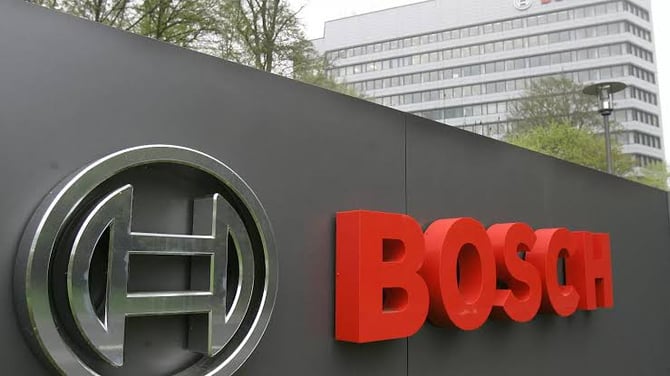Bosch Tightens Belt as German Auto Industry Struggles
Germany’s car industry, for so long a bellwether of that country’s economy, is struggling. Fresh from news that Porsche shares tumbled 7% on launch delays, Bosch plans to shed 13,000 jobs at its auto-parts division by 2030.
These cuts,equal about 3% of its global workforce, are aimed at saving €2.5 billion. The cuts, concentrated in Germany’s Stuttgart region and facilities such as Feuerbach and Schwieberdingen, add to the thousands of reductions the company has already made in recent years.
The decision reflects the mounting pressures facing Europe’s car industry. Carmakers are battling weak demand, rising labour and energy costs, and intensifying competition from cheaper Chinese models.
At the same time, US tariffs on cars and parts remain a drag, currently set at 15% after being scaled back from a threatened 27.5%. With margins squeezed, producers are reassessing spending as the transition to electric vehicles continues to add uncertainty. Subsidy rollbacks across Europe have further dampened EV sales, eroding confidence in the bloc’s carbon-reduction targets.
Bosch joins other major players such as Volkswagen, Volvo, Nissan and Stellantis in reducing headcount and curbing investment. Beyond job cuts, Bosch will also scale back commitments to new manufacturing facilities to offset slowing demand. For Germany, this represents another blow to Chancellor Friedrich Merz’s drive to revitalise industry with state support.
What Does This Mean for Me?
Despite these measures, growth prospects remain fragile. German GDP is forecast to expand just 0.2% this year after two consecutive annual contractions, underlining the challenge of restoring momentum in the eurozone’s largest economy while balancing fiscal discipline, industrial competitiveness, and the green transition.

More News

Market Summary: What Happened Yesterday and What Awaits Us Today (February 16)

Market Summary: What Happened Yesterday and What Awaits Us Today (February 13):

Market Summary: What Happened Yesterday and What Awaits Us Today (February 12)

Market Summary: What Happened Yesterday and What Awaits Us Today (February 11):

Market Roundup: What Happened Yesterday and What Awaits Us Today (February 10)

Asian Markets Rise After Takaichi Election Win While US Futures Slip

Stellantis shares plunge on loss warning and EV strategy rethink
